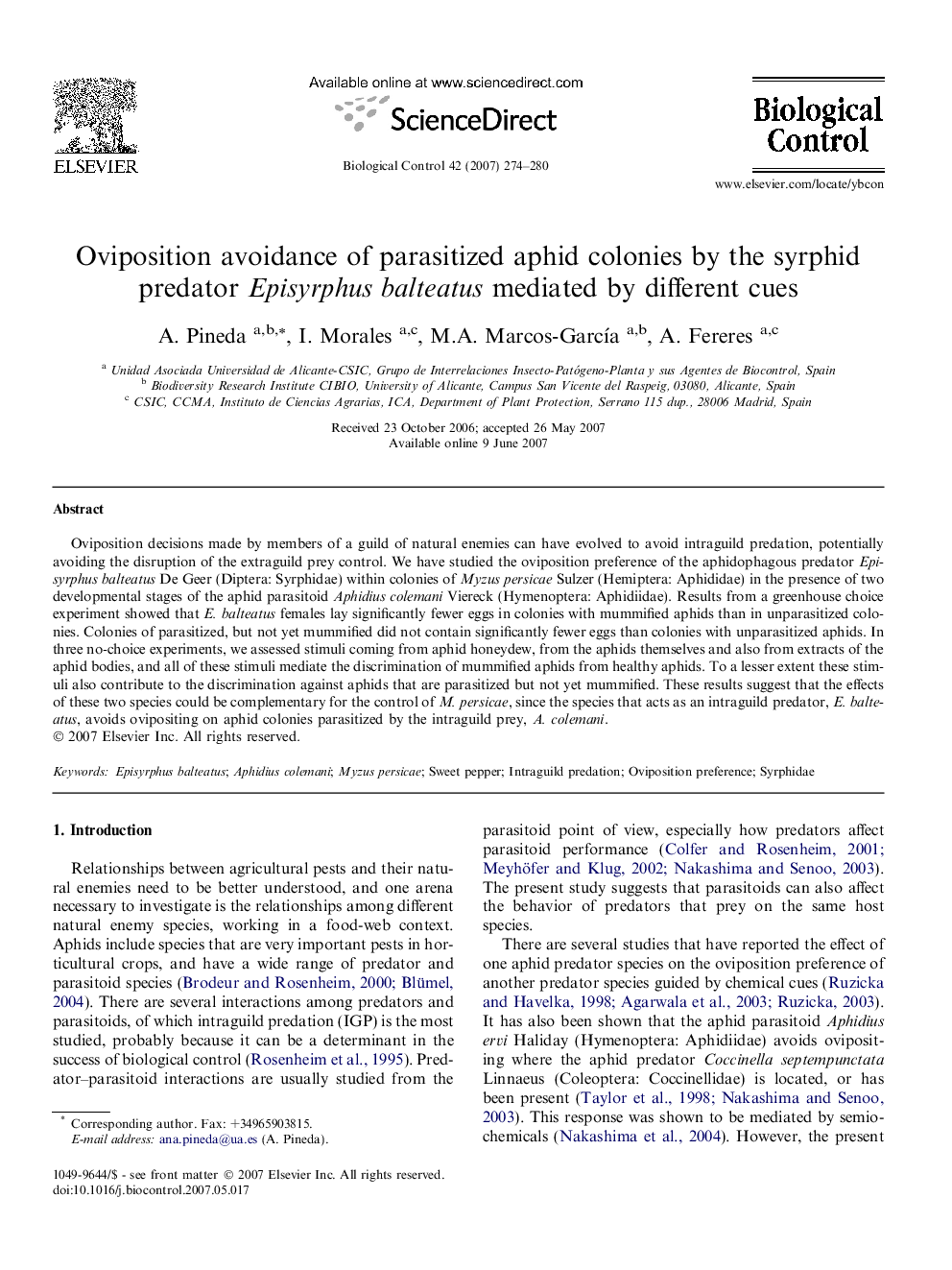| Article ID | Journal | Published Year | Pages | File Type |
|---|---|---|---|---|
| 4505064 | Biological Control | 2007 | 7 Pages |
Oviposition decisions made by members of a guild of natural enemies can have evolved to avoid intraguild predation, potentially avoiding the disruption of the extraguild prey control. We have studied the oviposition preference of the aphidophagous predator Episyrphus balteatus De Geer (Diptera: Syrphidae) within colonies of Myzus persicae Sulzer (Hemiptera: Aphididae) in the presence of two developmental stages of the aphid parasitoid Aphidius colemani Viereck (Hymenoptera: Aphidiidae). Results from a greenhouse choice experiment showed that E. balteatus females lay significantly fewer eggs in colonies with mummified aphids than in unparasitized colonies. Colonies of parasitized, but not yet mummified did not contain significantly fewer eggs than colonies with unparasitized aphids. In three no-choice experiments, we assessed stimuli coming from aphid honeydew, from the aphids themselves and also from extracts of the aphid bodies, and all of these stimuli mediate the discrimination of mummified aphids from healthy aphids. To a lesser extent these stimuli also contribute to the discrimination against aphids that are parasitized but not yet mummified. These results suggest that the effects of these two species could be complementary for the control of M. persicae, since the species that acts as an intraguild predator, E. balteatus, avoids ovipositing on aphid colonies parasitized by the intraguild prey, A. colemani.
